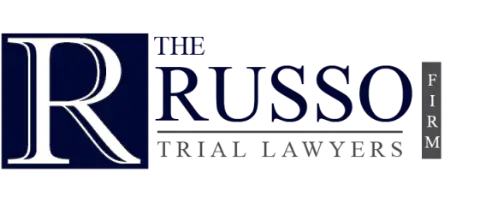Summary
- A herniated disc occurs when physical impact during a collision causes damage to the rubbery discs between bones in the spinal cord
- A long-term health impact caused by a herniated disk is chronic pain in the back, arms, or legs
- A herniated disc can lead to a loss of sensation in the affected body part
- Personal injury victims who suffer herniated discs can experience paralysis of the arms or legs
During the impact of a personal injury accident, a victim can sustain blunt-force trauma to their back that affects their spinal cord. This physical trauma can damage the rubbery discs that sit between each vertebrae, leading to a herniated disc. This severe injury can lead to arm and leg pain, weakness across the body, and numbness. A herniated disc is also sometimes called a slipped disc or ruptured disc. It can also be spelled as “disc” or “disk”.
A herniated disc can have a long-term health impact, particularly when someone fails to seek the proper medical care. Victims of herniated discs can experience chronic pain, loss of sensation across the body, poor bladder control, and paralysis. Victims of personal injury accidents can file civil claims to pursue compensation for damages caused by herniated discs.
What is a Herniated Disc?
A personal injury accident can expose a victim to severe bodily harm that can affect the back and spine. One significant type of spinal cord injury a personal injury victim can suffer is a herniated disk. The spinal cord is a column of bones known as vertebrae that each have a rubbery cushion between them called discs.
These discs can help facilitate movement in the spinal cord and cushion the vertebrae from impact. However, blunt-force trauma can cause a herniated disc by damaging the rubbery discs through a tear or physical impact.
Spinal cord injuries like herniated discs can have long-term health impacts that can affect personal injury victims for years. These long-term impacts caused by herniated discs can affect someone’s physical health, ability to feel with certain body parts, and ability to walk.
Herniated Discs Can Lead to Chronic Pain
One of the long-term impacts of a herniated disc is chronic pain. This type of spinal cord injury can cause pain in multiple areas, depending on where you suffered the injury. A herniated disk in the lower spinal cord can cause shooting pain in the lower back, thigh, calf, and buttocks. Personal injury victims can also feel pain in their upper back, shoulders, arms, and legs.
Physical pain and suffering caused by a herniated disc can have a negative impact on a person’s quality of life. They will have to live with pain every time they try to use their affected body part and can struggle with the toll of the pain. Personal injury victims need to seek immediate medical attention immediately after suffering a herniated disc to prevent this pain.
Leaving an Injured Disc Untreated Can Cause Loss of Sensation
A herniated disc can cause nerve damage in the spinal cord, affecting a person’s sensation. People may suffer from numbness and loss of sensation long-term, as they may not be able to feel a body part affected by their injury. Victims of slipped discs can struggle with a loss of sensation in their fingers, hands, arms, shoulders, legs, and feet.
Paralysis Caused by a Herniated or Ruptured Disc
One of the most significant long-term consequences of a herniated disc is paralysis. Spinal cords transmit electrical signals from the brain to the rest of the body and facilitate movement by sending these signals. If a herniated disc can affect the ability to carry these signals, people may fail to use body parts and can suffer from paralysis.
Someone who has paralysis of their legs will not be able to walk, which can affect their physical activity, ability to drive a car, and effectiveness at their job. It can cause economic damages because they will not be able to work and can lose wages. Paralysis can also cause emotional issues as they can struggle with the way their life has changed since their accident.
Contact The Russo Firm for Help with Your Back Injury Claim
At The Russo Firm, our personal injury lawyers can help you pursue the economic and non-economic damages caused by your herniated disc. We understand how this severe injury can affect you long-term and wish to help with your financial recovery for medical bills, lost wages, and lost earning potential.
Our experienced personal injury attorneys can use their decades of experience helping spinal cord injury victims to help you construct a legal counsel plan to help with your civil claim. Contact us for a free case evaluation today at (561) 270-0913 or leave a message on our online contact page.
Frequently Asked Questions About Herniated Discs
What Personal Injury Accidents Can Cause Herniated Discs?
Physical impact during a personal injury accident can cause a spinal cord injury like a herniated disc. The blunt-force trauma caused by the impact of a personal injury accident can expose your spinal cord to damage that can result in a herniated disc.
The following are some personal injury accidents that can cause a herniated disc:
- Car accident
- Truck accident
- Motorcycle accident
- Bicycle accident
- Pedestrian accident
- Slip and fall accident
What Should You Do After Suffering a Herniated Disc?
After a personal injury accident causes a ruptured disc, you should take some time to collect evidence at the scene of the accident. Videos and pictures from the scene can be helpful later in a civil claim to prove liability.
You should also go to the hospital to receive medical attention to prevent the above long-term health complications of a herniated disc. You should also consider hiring a personal injury lawyer to help recover compensation for damages.
Should You Hire a Personal Injury Lawyer After Suffering a Herniated Disc?
Hiring a personal injury lawyer can help after suffering a herniated disc, as they will have the experience to know how to recover compensation for damages. They can assist with developing a legal counsel plan based on their expertise in handling previous civil claims.
Some ways they can help with your personal injury claim include assessing the value of your damages, determining the at-fault party, collecting evidence, and negotiating a settlement with the at-fault party’s insurance company.

